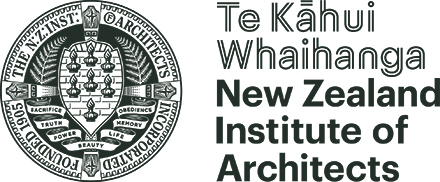Frequently asked questions
Brooklands Lagoon Public Toilet, a New Zealand Architecture Award winning project by Opus Architecture
Photo by Charlotte Clemens
Commonly asked questions about the design process and choosing, engaging and working with an architect.
Q.
Do I really need an architect?
This depends on multiple factors – including the size and scope of your project, location and materials – and changes year to year, but for a smaller fee an architect can help you figure out how to get the best out of your project, regardless of size and whether they are needed later on. Most architects offer one-off consultations and these can be incredibly useful. They can give you guidance on many aspects of your project from design and potential cost through to planning and construction. In a short space of time you can gain an enormous amount of valuable information which will help you realise your project.
Q.
How much does it cost?
Architects’ fees will vary depending on the location and complexity of the project and level of service expected from them. Some architects will charge you on the basis of a total project cost, others on a fixed price lump sum or on a time charge basis. How much or how little you commission an architect is up to you – from an initial design discussion through to the final delivery of the project on site. Clients often appoint an architect who is known to them or who has been recommended, or whose work they admire. This can be a sound initial response, but a more structured process of selection is desirable where matching requirements with the range of skills and services available has to be more precise.
Q.
How do I choose the right architect?
Create a shortlist and call each firm. Describe your project and ask if they are available to accommodate it. If so, request information that outlines the firm’s qualifications and experience. Ask to see a portfolio of work, or to visit finished buildings, and visit their websites. Above all, talk to your intended architect – it’s important you are compatible. Your architects must convince you both of their creativity and their ability to get things done.
Q.
How do I write a brief?
The quality of your brief is a key factor for the success of your project. It is your tool for clearly describing the requirements and functions of your building and proposed methods of operation and management. Your architect will help you establish a final brief. They will want to know your aims and your budget and they will also be interested in your design style. Are you looking for a design in keeping with the existing building? Do you want a contemporary? Are there specific sustainable or ecological principles upon which you would like to base your design? Your architect will also want to know the reasons for embarking on this building project. What are the intended activities? What are your overall expectations and what do you hope to achieve? Finally, every project needs an authority, someone who can make decisions about the designs, costs and day-to-day matters when the project is underway. At the initial meetings, your architect will listen carefully to your intentions and create a brief, addressing not only design aesthetics, but also the function of the building. Timings and budgets for your project will be defined at an early stage and only after you have approved initial sketches will the ideas be developed further.
Q.
How do I appoint an architect?
A good working relationship between architect and client is crucial to the success of any project. You and your architect should discuss and agree on the scope and cost of architectural services before the project begins and ensure the agreement is in writing. To help clients who are embarking on smaller building projects, the New Zealand Institute of Architects provides its members with an Agreement for Architect’s Services. For clients who are looking at larger or more complex building projects, the NZIA provides members with other documents, including a Standard Conditions of Contract or National Building Contract.
Q.
How do I track work in progress?
Your architect can, if you require, monitor the builder’s work in terms of meeting the standards required, finishing on time and not exceeding the contract figure.
Q.
How do I find out about competitive selection processes?
On projects of the right scale, competitions can be a successful procurement model; they help prioritise good design and bring the highest quality of thinking to a client’s project. The NZIA has developed guidelines for the fair and equitable running of an Architectural Design Competition. You can download that document here.
Q.
What do I do if there is a dispute, or I want to file a complaint?
It is an unfortunate fact that disputes do arise in a small number of contracts. Before considering any complaint, the NZIA would encourage you to raise your concerns with the architect directly, if possible. The NZIA would also advise that you check that your designer is currently a registered architect. This can be done by searching the NZRAB Register of Architects.
The NZRAB website also provides useful information for clients on how to access help when working with a registered architect. To access this support from the NZRAB, you first must complete an Architectural Service Concern Form. It is important to note that this is different from the Complaints Form or the Competence Concern Form, which are used if you decide to proceed with a formal complaint.
The NZIA can also offer advice to both clients and member architects in the event of any disagreement. Contact us.



